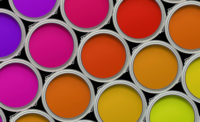AMSTERDAM, The Netherlands – With expected soft demand for 2014, AkzoNobel CEO Ton Büchner announced that the company will continue to cut costs. Büchner made the announcement as the company reported lower revenue for 2013.
Revenue for the year totaled €14,590 million, down 5 percent compared to 2012, a result of adverse currency effects and divestments. Operating income for 2013 excluding incidentals came in at €897 million (2012: €908 million excluding impairment). Net income attributable to shareholders reached €724 million, up from €386 million in 2012. Net debt came down by a third to €1,529 million at the end of 2013. The company has successfully completed its multi-year performance improvement program a year ahead of schedule, exceeding its targets in doing so. In 2014, AkzoNobel will continue to significantly restructure to reduce costs further and anticipates related restructuring charges of at least €250 million.
Commenting on the results, Büchner noted, "We indicated at the start of 2013 that trading conditions would continue to be challenging and that has proven to be the case. In response, we accelerated our company-wide improvement actions and have brought our performance improvement program to a successful conclusion a year ahead of schedule and above target. While the first half of 2013 was impacted by weaker trading conditions and specific one-off events in Specialty Chemicals, the second half has shown early signs of stabilization in several end markets. In combination with our restructuring actions, this positive effect has been evident in our improving return on sales in the third and fourth quarters, despite foreign currency headwinds. In 2014, we will continue to improve our ability to leverage our strong brands and leading market positions. We will further restructure our business, reduce our costs and drive organic growth. I am confident that we are on track to deliver on our 2015 strategic goals."
Decorative Paints full-year revenue was down 3 percent as a result of adverse currency effects and divestments. Global volumes for the year were up 3 percent, with increases in all regions except Europe, which remained flat. The pick-up in overall volumes was particularly noticeable in the second half of the year; Third quarter and fourth quarter volumes were each up 5 percent compared with the prior year. Margins improved as a result of strong margin management and lower raw material prices. Performance improvement and restructuring measures led to a lower cost base, which, combined with lower restructuring charges, drove operating income above the previous year, before the divestment gain on Building Adhesives.
Full-year revenue at Performance Coatings declined 2 percent on flat volumes as adverse currency effects outweighed a positive price/mix development. Volumes gradually improved throughout the year to be flat overall, and up 2 percent in the fourth quarter. Margins were maintained despite higher restructuring costs. Operating income for the year as a whole was down 3 percent, with underlying improvements offset by higher restructuring charges as well as adverse currencies. Restructuring activities were accelerated in the fourth quarter, with the intended closure of seven sites announced.
Specialty Chemicals annual revenues not only reflected a year of continued soft demand, but also included a significant divestment effect from the sale in 2012 of Chemicals Pakistan. Full-year revenues were down 11 percent, with 6 percent attributable to divestments and 2 percent a consequence of adverse currency effects. Lower volumes accounted for a further 2 percent revenue decline, although they did stabilize in the second half of the year and volumes in the fourth quarter were up 3 percent versus the fourth quarter of 2012. Full-year operating income was impacted by increased restructuring costs versus the previous year, with a comprehensive performance improvement program implemented at Functional Chemicals in the second half of the year. The divestments of both the Primary Amides and Purate businesses were completed in the fourth quarter.
The company’s performance improvement program (PIP), which was announced in October 2011, has exceeded the anticipated cumulative amount of €500 million in EBITDA for the period through 2013. The program has delivered a total of €545 million in benefits a year earlier than originally planned and has now been completed. Further efficiency and cost reduction measures have been identified as part of continuous improvement initiatives, which are integrated in the regular business activities. Total restructuring costs for 2013 amounted to €348 million (2012: €292 million), of which €204 million was in the fourth quarter. AkzoNobel anticipates 2014 restructuring charges of at least €250 million.




Report Abusive Comment